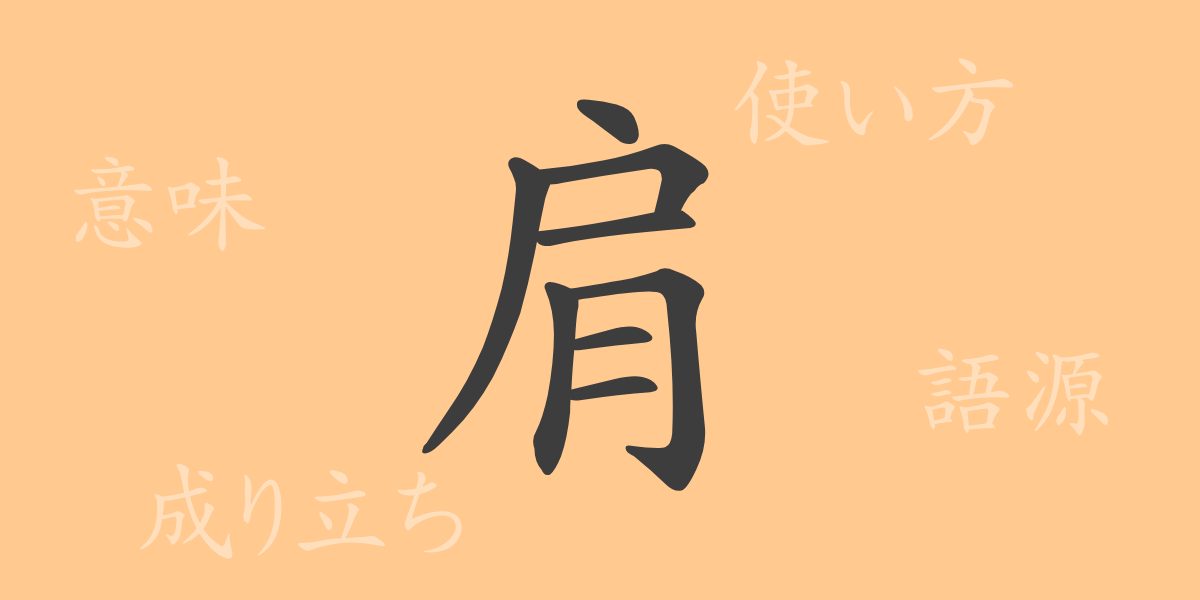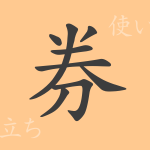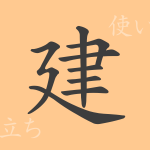The beauty of the Japanese language is reflected in its characters. One of the commonly used kanji, “肩” (かた, kata), is deeply rooted in our daily lives and has a wide range of uses. This article explores the history, meaning, usage, and cultural impact of the kanji “肩” (かた, kata), offering a glimpse into the depth of the Japanese language.
Origin of 肩
The kanji “肩” (かた, kata) is a character that originated in ancient China, its shape mimicking a person’s shoulder. From the act of carrying something on one’s shoulder, it came to symbolize responsibility or burden and has been used in various expressions. Over time, the shoulder has also become a metaphor for human relationships and social roles.
Meaning and Usage of 肩
The kanji “肩” (かた, kata) is used to refer to a part of the human body, but it also appears in idiomatic expressions such as “肩を持つ” (かたをもつ, kata o motsu) meaning “to support someone” and “肩が凝る” (かたがこる, kata ga koru) meaning “to have stiff shoulders.” Additionally, it is seen in compound words like “肩書” (かたがき, katagaki) meaning “title” or “position” and “肩代わり” (かたがわり, katagawari) meaning “to take over someone else’s responsibility.” These expressions often convey abstract concepts beyond the physical part of the body.
Readings, Stroke Count, and Radical of 肩
The kanji “肩” (かた, kata) is one of the characters particularly familiar to Japanese speakers.
- Reading: On’yomi – ケン (けん, ken); Kun’yomi – かた (kata)
- Stroke count: 9 strokes
- Radical: 肉 (にくづき, nikuzuki)
Idioms, Proverbs, and Phrases Using 肩
Idioms, proverbs, and phrases containing the kanji “肩” (かた, kata) add rich nuances to the Japanese language. For instance, “肩で風を切る” (かたでかぜをきる, kata de kaze o kiru) describes a swaggering manner, and “肩を並べる” (かたをならべる, kata o naraberu) means to stand on equal footing. Additionally, “肩書” (かたがき, katagaki) refers to a social title or occupation, and “肩代わり” (かたがわり, katagawari) means to take over someone else’s responsibility.
Conclusion About 肩
The kanji “肩” (かた, kata) is a wonderful example of the richness of the Japanese language in its shape, meaning, and usage. From everyday conversations to business contexts, this kanji plays an important role in our lives. Understanding and appropriately using expressions related to shoulders can enhance Japanese communication, making it richer and more nuanced.

























